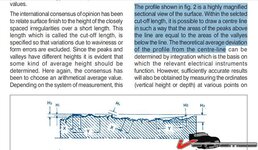You are using an out of date browser. It may not display this or other websites correctly.
You should upgrade or use an alternative browser.
You should upgrade or use an alternative browser.
Rather interesting video on rotors
- Thread starter big2bird
- Start date
DeeVeeEight
Fast Pedalphile
Good stuff there. Makes perfect sense too. :thumbs:
mrvette
Phantom of the Opera
Good stuff there. Makes perfect sense too. :thumbs:
Well, now I know....I had clicking in the rear pads once a long time ago on this shark, wondering WTF was going on, I set it on stands and ran the sucker with no tires, those pads were fighting that pin but good, and had actually worn the holes and the PIN ......looking at the rotor, it was funny looking when spinning...appeared fine when still.....
fuck it...two new rotors and pad set, and problem solved....I had no clue it was from turning the rotors.....
I think I still have the rotors....time for the trash....
:devil:
kwplot34
Heart Attack
That is old news. the shop i worked in we always sanded the rotors after we turned them. I have not worked there since 1992.
BRUTAL64
Neanderthal
I've always wondered about something like this. I ran into this poor stopping from newly turned rotors years ago. So I always DID NOT turn rotors with slight wear. If deeply scored then I'd replace. Now I know why.:friends:
00fxd
Well-known member
Very interesting, thanks bird
AColbe01
Active member
Thanks, good information!
73 Mike
I'll drive it someday
That is old news. the shop i worked in we always sanded the rotors after we turned them. I have not worked there since 1992.
Not old news to me. I've never heard of this before and as Gene said, I've heard the clicking before along with poor braking with new rotors.
I find it amazing that an orbital sander was the solution all along.
I also was taught in high school auto shop that if the grooves weren't serious to not bother replacing the rotors. I've done this for years and it has worked fine. Again, now I know why.
Last edited:
Stpman
Well-known member
I haven't turned a rotor in years either been too far gone or just as cheap to put on new rotors, I did learn something here though thanks Bird
00fxd
Well-known member
I've hesitated to turn Corvette rotors. I went thru the times before stainless sleeved calipers - if the brakes worked you left the damn things alone, just slipped in pads. With all other cars I felt you got more even braking from side to side as well as longer pad life if the rotors were turned - I do recall something about "Dressing" with sand paper tho.......
Ozzy
Well-known member
I have used a rotor hone when replacing pads, or quieting down noisy brakes for many years and had excellent results.
http://www.flexhone.com/
http://www.flexhone.com/
DWncchs
Well-known member
- Joined
- Aug 23, 2009
- Messages
- 341
Good info but also pretty old info. You also should scrub to get the fine metal particles off the rotor surface after sanding.
73 Mike
I'll drive it someday
I have used a rotor hone when replacing pads, or quieting down noisy brakes for many years and had excellent results.
http://www.flexhone.com/
Which grit hone do you use? I've found 60 grit and 200 grit.
ToddG
Well-known member
- Joined
- Jan 31, 2010
- Messages
- 113
I lived in Germany for 25 years and ran a shop there. Our shop and no other shop would ever turn a rotor. It is just unheard of. You would be hard pressed to even buy a machine. Granted you can get them but it is a practice that is frowned upon nor does any "Meister" want to take responsibility for non stopping issues after doing a brake job.
c-ya
ToddG
c-ya
ToddG
Red
Well-known member
Thanks for sharing that excellent educational video! It explained brake observations I had made over the years without answer. This is immediately helpful as the brakes on my DD need replacement.
MYBAD79
Moderator
Machining rotors is not even cost effective. New rotors for most cars are under $100...
If you hit the rotors with a orbital sander and 60 grit sandpaper you'll remove the directional finish, I buy that.... but I have a hard time believing that the pad springs back - this would mean it is forced outward, hits the calipper and then pushes the piston back so that it can move (or "spring") back in it's former position ? How can the pad move the piston back against the hydraulic pressure??
How long will it take until semi metallic pads remove the directional finish anyways ?? Probably not long.... I think this might be a bigger issue with organic (soft) pads....
Surface finish: a 3 or 20 micron finish is not measured from one groove to the next...

overall: the message in the video is clear: machining rotors can be dangerous. Some statements in the video however seem to be incorrect....
If you hit the rotors with a orbital sander and 60 grit sandpaper you'll remove the directional finish, I buy that.... but I have a hard time believing that the pad springs back - this would mean it is forced outward, hits the calipper and then pushes the piston back so that it can move (or "spring") back in it's former position ? How can the pad move the piston back against the hydraulic pressure??
How long will it take until semi metallic pads remove the directional finish anyways ?? Probably not long.... I think this might be a bigger issue with organic (soft) pads....
Surface finish: a 3 or 20 micron finish is not measured from one groove to the next...

overall: the message in the video is clear: machining rotors can be dangerous. Some statements in the video however seem to be incorrect....
